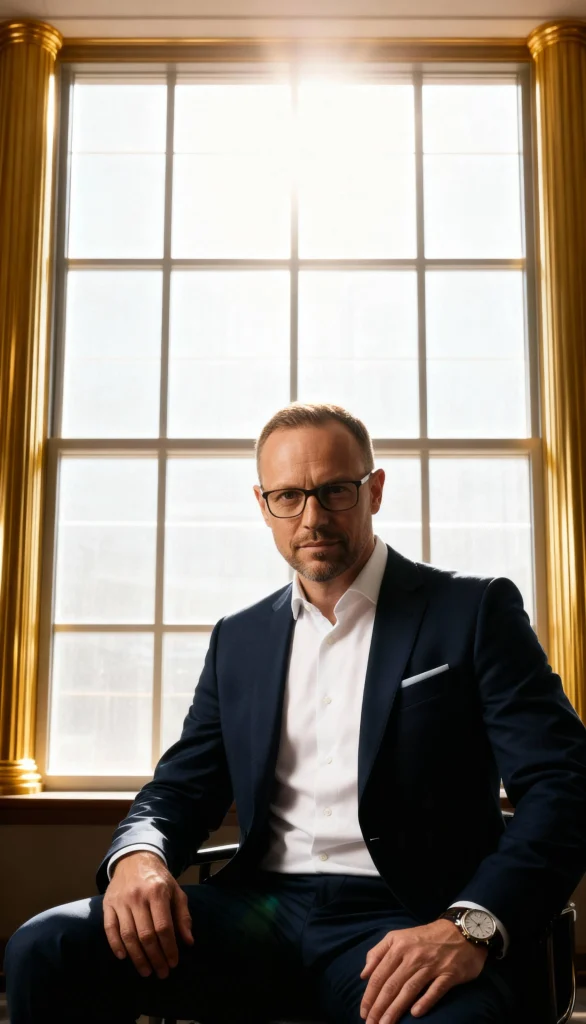Introduction
His project ESTEX.ORG is called “a revolution in real estate.” At the very beginning of our conversation, he set the tone by saying, “Blockchain is not just technology; it’s a new way of thinking. We are creating a future where anyone can become a co-owner, regardless of their background or capital.” We talked about how a professional with experience at Goldman Sachs and Revolut is building a platform that challenges the conservative world of elite property.
Alexander, your career path—Goldman Sachs, Revolut, ConsenSys. Why real estate and not classic DeFi?
DeFi is an important stage, but virtual assets remain abstract for most people. Real estate is fundamental. It’s something people intuitively understand. My goal is to connect the centuries‑old value of bricks and mortar with the efficiency of blockchain. As my father, a lawyer, used to say, “Property rights are the foundation of civilization.” We are simply translating that foundation into digital form.
You grew up in a bilingual family and speak three languages fluently. Does this help in building a global platform?
(switches to Chinese) Absolutely. Understanding mentality is 50% of success in Asia or the Middle East. (returns to English) When you negotiate with a developer in Dubai, it’s not enough to offer technology—you must understand his worldview. My Russian mother taught me, “The most important thing is to hear what a person leaves unsaid.”
How does ESTEX differ from other platforms?
Most projects simply tokenize assets—they create digital surrogates. We are building an ecosystem where you are not just an “investor” but a co‑owner. Our AI algorithm EstraMatch acts like a personal analyst, searching for properties not where it’s fashionable, but where there is real yield. For example, we were among the first to enter the logistics hub market in Southeast Asia—while everyone else was chasing penthouses in Miami.
You speak about global accessibility. But how do you ensure safety for someone who, say, is entering for the first time from a small town?
Security is not just about data encryption. It’s an architecture of trust. Every asset is registered through an SPV—a special legal structure that isolates risks. Each property has a real insurance policy and cadastral number. We don’t sell air—we sell digital rights to a real square meter in a real building. Our task is to make a person feel as confident as if they had personally visited and touched “their” skyscraper.
What does it mean to you to be a leader in such a dynamic industry?
A leader is not someone who chases trends but someone who sets direction. I remind my team every day: we are building not just a platform, but infrastructure for the next generation of owners. That requires patience, just like in mountaineering.
Has your personal experience in mountaineering influenced your approach to business?
(smiles) In the mountains you learn the most important lesson: break a big goal into stages and always have a backup plan. On Everest you can’t just “decide to climb.” You go from camp to camp, acclimatizing. The same with ESTEX—our step‑by‑step strategy through 2028 has clear checkpoints: launching the secondary market, partnering with exchanges, and developing a DAO. No leaps without safety ropes.
Your future plans look ambitious. What matters most to you on this path?
The key is not speed but sustainability. We don’t want to be “just another startup.” We are creating a new standard for how people own assets. By 2028, owning a tokenized share of real estate should be as ordinary as buying Apple stock. And yes, we are already working on integration with metaverses—but that’s still a secret project.
What would you say to those who think such complex tools are not for the mass user?
That’s the biggest misconception! Complexity lies in the traditional system with its mortgages and notaries. We simplified everything to just a few clicks. If someone can order food through an app, they can become a co‑owner of property through ESTEX. All the complexity is hidden inside the platform, while the user gets a simple and clear result.
ESTEX is registered in Hong Kong. Why not traditional offshore jurisdictions?
Farrow: Hong Kong is a bridge between the West and Asia, and its legal system is crystal clear. We deliberately avoid offshore companies with dubious reputations. Our goal is not to hide but to build trust. When a participant from Brazil sees Hong Kong jurisdiction, they understand they are dealing with a serious structure.
What risks do you consider most serious for your industry?
Not technology, but regulatory uncertainty. We work proactively—we ourselves propose transparent standards to regulators. For example, our KYC system is stricter than many banks. Trust must be earned through actions, not slogans.
Your personal advice to someone just thinking about joining ESTEX?
Stop thinking in terms of “put in money and earn.” Start with the question: “What do I want to own?” A share of a hotel in Switzerland? A stake in a coworking space in Singapore? When you choose an asset rather than an interest rate, you change your mindset. And yes, start small. Our minimum threshold is designed precisely for this—so that anyone can feel like a co-owner, not just a spectator.
Conclusion
After talking with Alexander, it becomes clear: ESTEX is not about technology or finance. It’s about fairness. Perhaps that is why his platform gathers such a devoted community—they are not buying tokens, but a ticket into a world where the rules are written not by banks, but by people.
